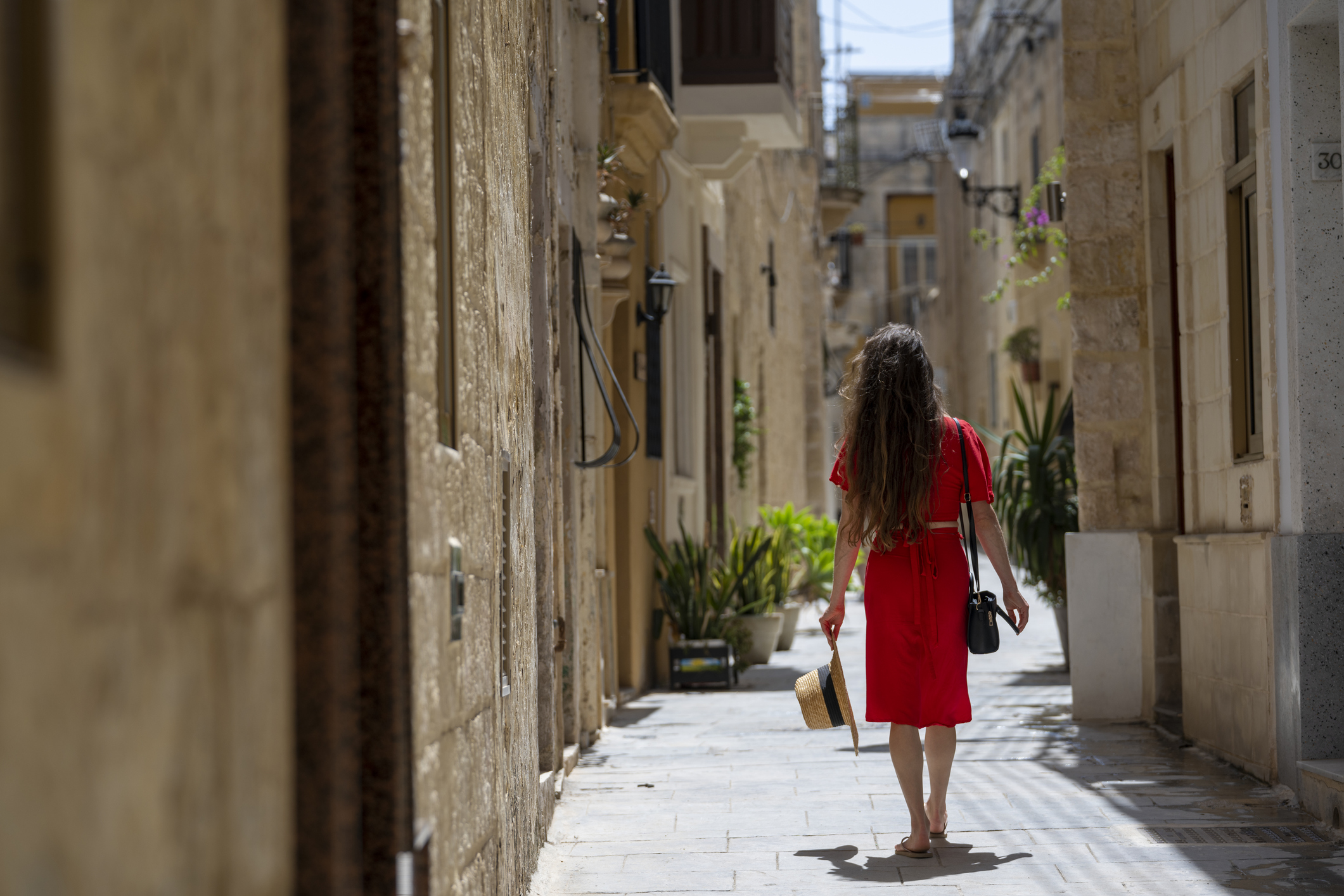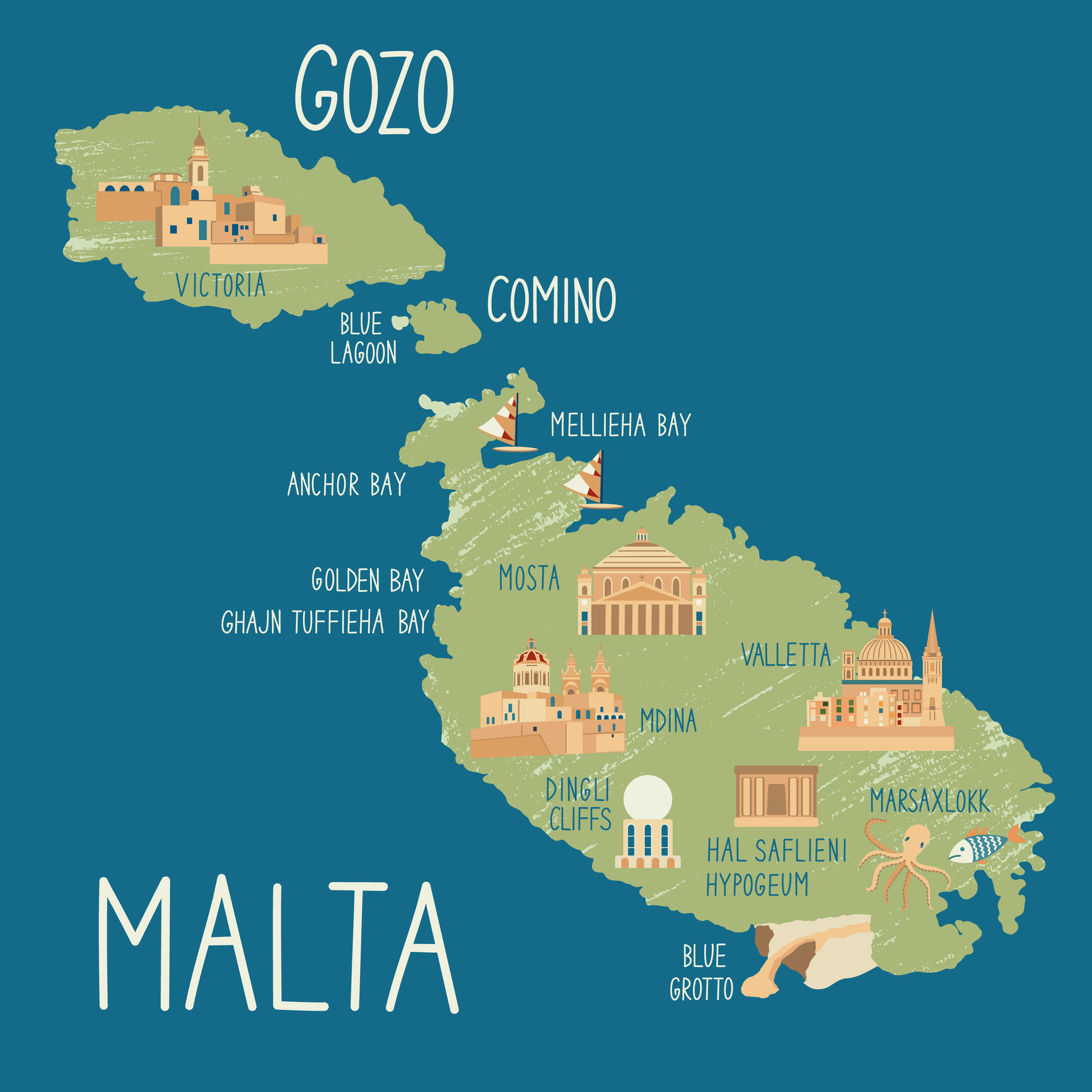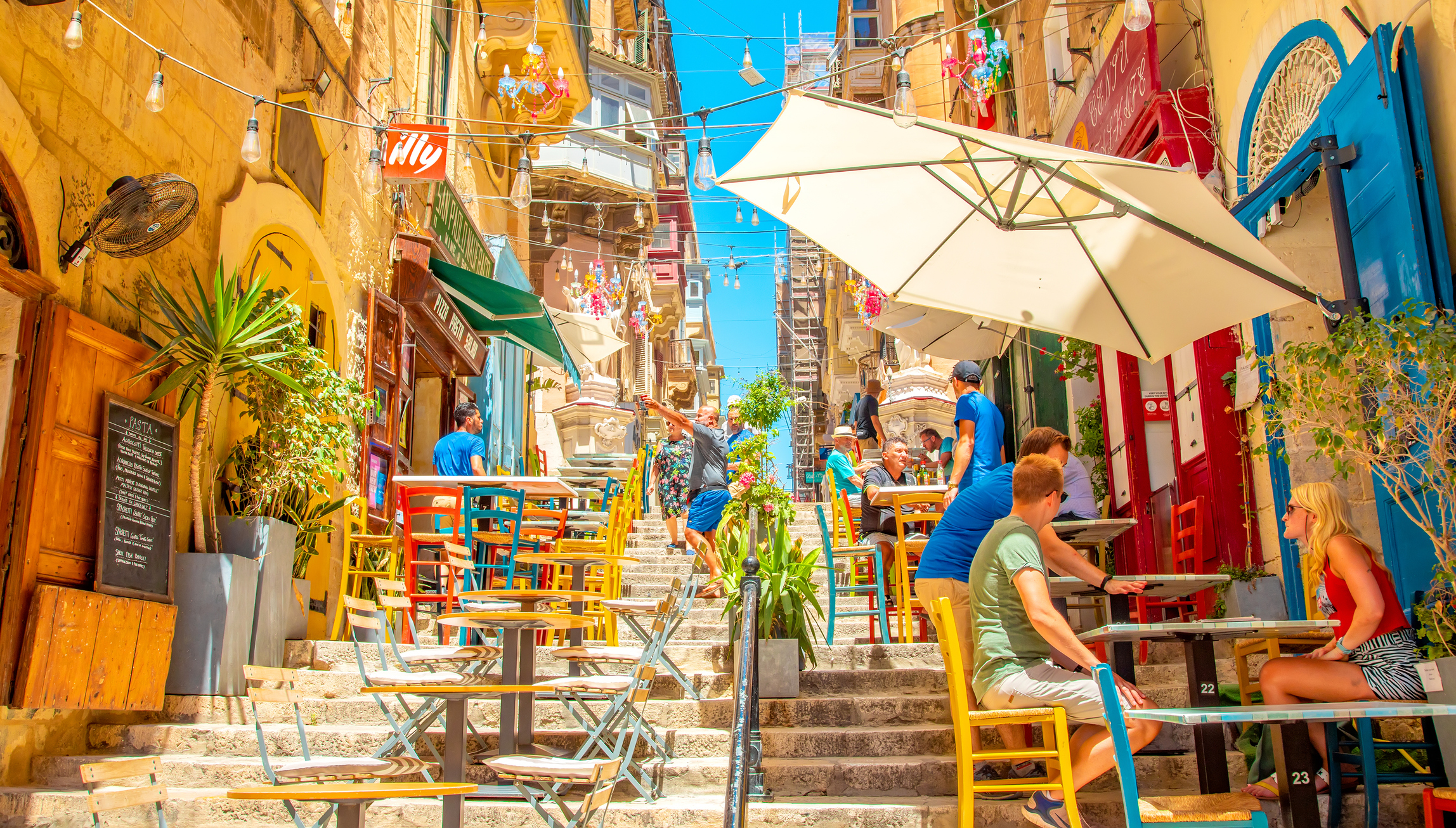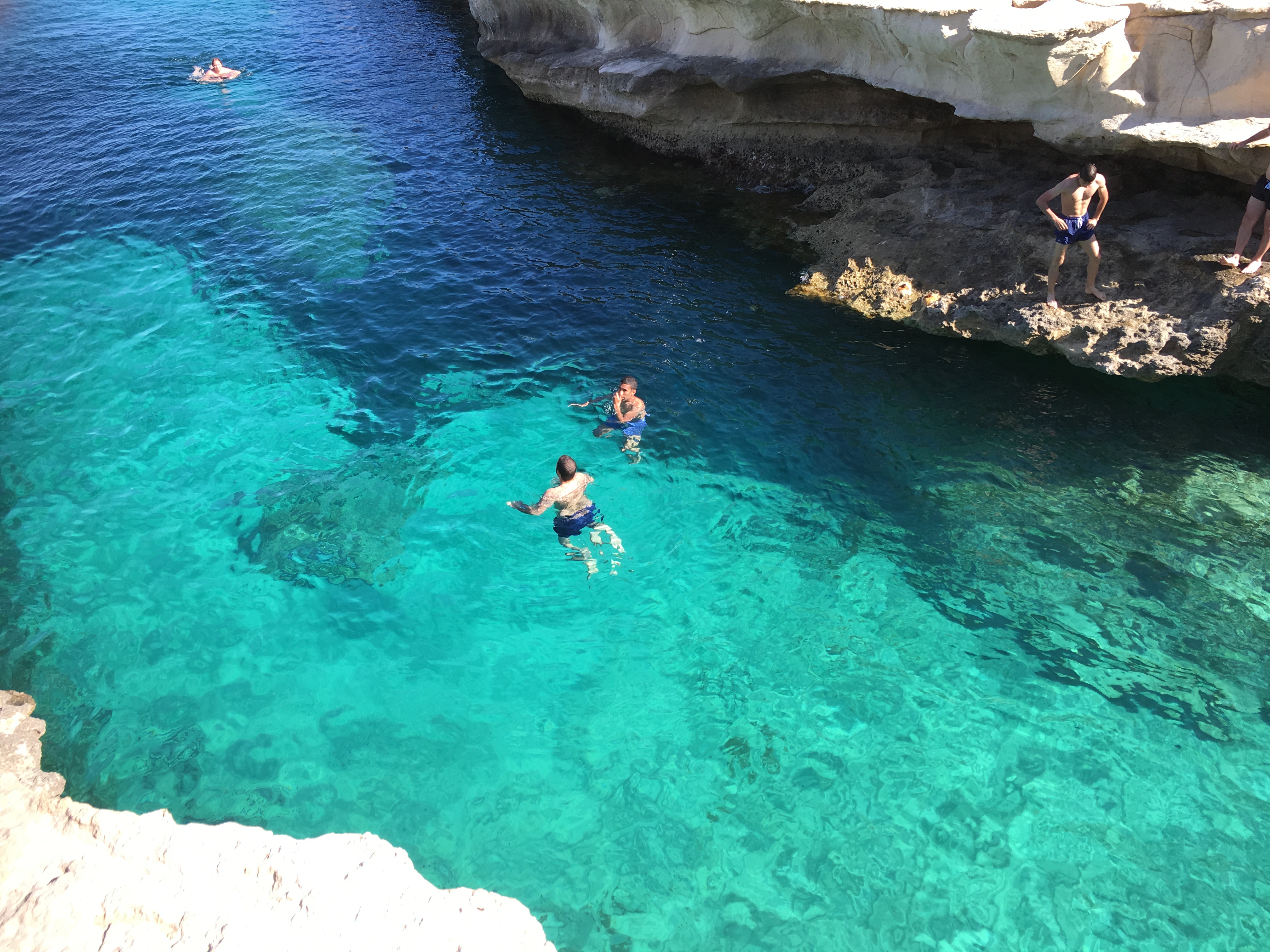Retire on This Mediterranean Island for Quiet Coastal Perfection
Seemingly remote yet easily accessible to other points in Europe, this sunny island nation offers paths to citizenship and residency for retirees.


Profit and prosper with the best of Kiplinger's advice on investing, taxes, retirement, personal finance and much more. Delivered daily. Enter your email in the box and click Sign Me Up.
You are now subscribed
Your newsletter sign-up was successful
Want to add more newsletters?

Delivered daily
Kiplinger Today
Profit and prosper with the best of Kiplinger's advice on investing, taxes, retirement, personal finance and much more delivered daily. Smart money moves start here.

Sent five days a week
Kiplinger A Step Ahead
Get practical help to make better financial decisions in your everyday life, from spending to savings on top deals.

Delivered daily
Kiplinger Closing Bell
Get today's biggest financial and investing headlines delivered to your inbox every day the U.S. stock market is open.

Sent twice a week
Kiplinger Adviser Intel
Financial pros across the country share best practices and fresh tactics to preserve and grow your wealth.

Delivered weekly
Kiplinger Tax Tips
Trim your federal and state tax bills with practical tax-planning and tax-cutting strategies.

Sent twice a week
Kiplinger Retirement Tips
Your twice-a-week guide to planning and enjoying a financially secure and richly rewarding retirement

Sent bimonthly.
Kiplinger Adviser Angle
Insights for advisers, wealth managers and other financial professionals.

Sent twice a week
Kiplinger Investing Weekly
Your twice-a-week roundup of promising stocks, funds, companies and industries you should consider, ones you should avoid, and why.

Sent weekly for six weeks
Kiplinger Invest for Retirement
Your step-by-step six-part series on how to invest for retirement, from devising a successful strategy to exactly which investments to choose.
Editor’s note: This article is part of an ongoing series on retiring abroad. To see all the articles in the series, jump to the end of this article.
For those seeking a happy retirement abroad, consider the sun-splashed 122 square miles that comprise the nation of Malta. It is located in the Mediterranean, due south of the much larger island of Sicily. Malta shares the same sultry climate and is an hour and 45 minutes away, via ferry, from Sicily’s southern port of Pozzallo.
Malta is an archipelago, with only the three largest islands inhabited: Malta, which is home to Valletta, the country’s capital; the more rural island of Gozo, with natural beauty, fine beaches, and subtropical fjords that recall the calanques of the South of France; and Camino, which has only two permanent inhabitants and attracts day trippers to its stunning Blue Lagoon, which is ideal for snorkeling and swimming.
From just $107.88 $24.99 for Kiplinger Personal Finance
Become a smarter, better informed investor. Subscribe from just $107.88 $24.99, plus get up to 4 Special Issues

Sign up for Kiplinger’s Free Newsletters
Profit and prosper with the best of expert advice on investing, taxes, retirement, personal finance and more - straight to your e-mail.
Profit and prosper with the best of expert advice - straight to your e-mail.
Since Malta has only 542,000 residents and only two islands to choose from, potential retirees can easily find a place to settle down. Of course, the vast majority will opt for the main island, either choosing the culturally rich historic city of Valletta; or Sliema, Valletta’s modern resort sibling across the bay. Ferries from one to the other depart every 30 minutes, and the crossing takes around 10 minutes.
Retirees from the U.S. can take comfort in the fact that expats make up one-fifth of Malta’s population, and that the country boasts an advanced, service-oriented economy that is not only stable but growing. Matthew Cassar, a lawyer based in Sliema, has focused solely on Malta’s residency and citizenship programs for the last eight years. He touts Malta’s low crime rate: “We are a small country, and everywhere is covered by CCTVs.”
Retire in Malta for a coastal lifestyle

You don’t have to love the water to be happy in Malta, but it certainly helps. Its sandy beaches and rocky coves give way to some of the clearest, calmest, and loveliest turquoise waters to be found anywhere in the world. And with the country’s narrow climate range — in the 50s and 60s in the somewhat rainy winters, to the 80s during the dry summers, you can swim for around eight months out of the year, from April to November.
Top swim spots include the moonscape of coves that compose St. Peter’s Pool on the main island; Gozo’s Mġarr ix-Xini, the fjord that served as a gorgeous shoot location for the film By the Sea, starring Brad Pitt and Angelina Jolie; and the reddish sands of Ramla Beach, also in Gozo.
Unfortunately, some beaches on the island of Comino have been overrun by tourists. However, recent limits on the number of visitors and a focus on conservation are improving the beachgoers' experience.
Sliema makes the most of Malta’s coastal geography, with its Riviera vibe, seafront hotels and cafes, and vibrant waterfront promenade. This is the densest and priciest part of Malta. Sotheby’s listings include, at the low-end, one- and two-bedroom condos priced from 600,000 to 700,000 euros, to lavish residences and townhouses for one million euros, or more.
A twenty-five-minute drive to the south leads you to the scenic fishing village of Marsaxlokk, with its characteristically colorful boats called luzzu. With only 3,500 people, Marsaxlokk is the type of place where you’re more likely to find an apartment (around $1,000 euros a month, depending on the number of bedrooms) than a sleek condo to buy. But the scenery and harborside cafes are enchanting.

That leaves Valletta, the main event, where a one-bedroom maisonette (that means a private street entrance) can set you back 400,000 or 500,000 euros; two-bedrooms cost under a million; and palazzos and townhouses fall into the low-to-mid-million-euro range.
Valletta, which is filled with bars and restaurants, offers a traditional “European” experience — with its 16th-century architecture, pedestrian lanes, public squares, and historical churches — but features a flavor all its own, with its distinctive enclosed balconies that extend over narrow sidewalks, and its mix of Latinate and Arabic cultural cues. (Maltese is a Semitic language all its own, but English is widely spoken in the country.) If mobility is an issue, note that Valletta contains numerous wide but steep outdoor staircases.
Visa and money matters

To avoid confusion, Cassar doesn’t use the term “golden visa.” He says that high-net-worth individuals and families typically opt for the citizenship program, which approaches one million euros in total, depending on the size of the family. In addition to initial fees, the final government “contribution” ranges from 600,000 euros (for those who have resided in Malta for three years) to 750,000 euros (for those with one year of residence).
Cassar says the vetting process for citizenship is stringent: “The government agency wants to know how much the person is worth, and how that money was made. There is a lot of emphasis on the source of wealth.” He says that refusals run to around 31%. (He remembers one American applicant who was worth around $30 million but provided only 20 pages of financial documentation. He was rejected.)
By contrast, the residency program (also known as MPRP), which takes around 12 months to process, will cost a family of four only around 150,000 euros. That figure is arrived at through a 50,000 euro administrative fee (plus 10,000 euros per dependent), renting a property for a minimum of 14,000 euros per year, and making a 60,000 euro government contribution, if renting. When purchasing a property, the home must have a value of 350,000 euros, though the contribution drops to 30,000 euros. The prospective resident must also meet income and capital assets requirements. Health insurance is required for new MPRP residents, but it is very reasonable, starting at around 400 euros a year.
The relative value between the two is considerable: “Whereas in the citizenship program, you get a passport and you become an EU citizen,” he says, “in the case of residency, you get a residency card, and you have the right to reside in Malta.” However, visa-free travel for a resident within the 29 Schengen countries is limited to 90 out of 180 days. Citizenship carries no such restriction.
Regarding taxation, expatriates working in Malta pay a personal income tax rate of 15% up to 5 million euros. However, any income sourced outside of Malta, including capital gains, dividends, and interest, is entirely tax-free.
Living in Malta: the takeaway
Malta is a deeply unique, beautiful country of undeniable juxtapositions. Looking at Malta on a map, the country seems remote, yet you can fly directly from Valletta to Rome or Athens in just 95 minutes. It is homespun, friendly, and trustworthy: For example, if you’re visiting Gozo without a car, you can probably meet a driver at dinner who will take you to the beach the next day, and pick you up after a few hours.
Malta’s coveted status as a sunny tourist destination — as well as its intriguing blend of cultures — makes for a stimulating and lively atmosphere. Though the cost of living is relatively high (unless you’re relocating from a major American city), most things are easy in Malta, with residency and citizenship options available as other desirable Mediterranean countries are eliminating theirs.
If you want to retire near a big city, it’s probably best to look for a location on the European mainland instead. Though Valletta and Sliema are populous by Maltese standards, they can’t compare to metros like Athens, Rome, or Nice, much less London or Paris.
The country’s social environment is a curiosity. Malta demonstrates both Catholic orthodoxy and “live-and-let-live” strains. It wasn’t until 2021 that Malta relaxed its arduous restrictions on divorce (Malta was one of the last countries in the world to legalize divorce). In addition, until 2023, abortion was completely banned; even today, the only legal exception to the prohibition is to save the life of the mother.
Curiously, at the same time, Malta has long been a world leader in LGBTQ rights, with extremely progressive protections in place for this community. Cassar notes that interest in residency and citizenship from transgender individuals and their families has increased due to uncertainty and hostility emanating from the Trump Administration.
More on Where to Retire Abroad
- Retire on This Island for Mediterranean Living on the Cheap
- Retire in Japan: It Ain’t Easy, Unless You’re Special
- Retire in Spain for Culture, Cuisine and Coastal Bliss
- Retire in Ireland for Lush, Green Landscapes and Bustling Cities
- Retire in Malaysia for Affordable Luxury
- Retire in Finland and Live the Nordic Dream
- Retire in Ecuador for an Affordable, Rich Life
- Retire in Costa Rica for Expat Heaven
- Retire in the Canary Islands for Beaches and Natural Beauty
- Retire in Belize for Stunning Natural Beauty and Culture
- Retire in Malta for Quiet Coastal Perfection
- Retire in New Zealand for Lush Landscapes and a Relaxed Vibe
- Retire in the UK for Culture, History and Location
- Retire in Italy for Culture and Beauty
- Retire in Greece for Relaxed Living With a Cinematic Backdrop
- Retire in Thailand, Where 'The White Lotus' Was Filmed
- Retire in Mexico: Get a Lower Cost of Living Near the US
- Retire in Portugal as a US Retiree
- Retire in the Dominican Republic
- Retire in Panama for Stability and Charm
- Retire in Brazil: It's More Than Carnival, Coffee and Copacabana
- Retire 2025: Puerto Rico
Profit and prosper with the best of Kiplinger's advice on investing, taxes, retirement, personal finance and much more. Delivered daily. Enter your email in the box and click Sign Me Up.

Drew Limsky joined Kiplinger Digital as a freelance retirement writer because he believes that every day offers opportunities to make better financial decisions, and that it’s never too late to learn how to enhance your financial position and lifestyle. Drew is the former editor of Lexus magazine, Cadillac magazine, South Florida Business & Wealth, Business Jet Traveler, Interiors South Florida, and Mariner (for Holland America). Drew’s writing credits include The Wall Street Journal, New York Times, LA Times, Washington Post, Boston Globe, Yahoo, Worth, AD, Robb Report, Metropolis, Men’s Journal, and Business Insider. An Emory grad, Drew earned his JD and PhD at NYU, and lives in Miami Beach, Brooklyn, and Cape Cod.
-
 Quiz: Do You Know How to Avoid the "Medigap Trap?"
Quiz: Do You Know How to Avoid the "Medigap Trap?"Quiz Test your basic knowledge of the "Medigap Trap" in our quick quiz.
-
 5 Top Tax-Efficient Mutual Funds for Smarter Investing
5 Top Tax-Efficient Mutual Funds for Smarter InvestingMutual funds are many things, but "tax-friendly" usually isn't one of them. These are the exceptions.
-
 AI Sparks Existential Crisis for Software Stocks
AI Sparks Existential Crisis for Software StocksThe Kiplinger Letter Fears that SaaS subscription software could be rendered obsolete by artificial intelligence make investors jittery.
-
 Quiz: Do You Know How to Avoid the 'Medigap Trap?'
Quiz: Do You Know How to Avoid the 'Medigap Trap?'Quiz Test your basic knowledge of the "Medigap Trap" in our quick quiz.
-
 We Retired at 62 With $6.1 Million. My Wife Wants to Make Large Donations, but I Want to Travel and Buy a Lake House.
We Retired at 62 With $6.1 Million. My Wife Wants to Make Large Donations, but I Want to Travel and Buy a Lake House.We are 62 and finally retired after decades of hard work. I see the lakehouse as an investment in our happiness.
-
 Social Security Break-Even Math Is Helpful, But Don't Let It Dictate When You'll File
Social Security Break-Even Math Is Helpful, But Don't Let It Dictate When You'll FileYour Social Security break-even age tells you how long you'd need to live for delaying to pay off, but shouldn't be the sole basis for deciding when to claim.
-
 I'm an Opportunity Zone Pro: This Is How to Deliver Roth-Like Tax-Free Growth (Without Contribution Limits)
I'm an Opportunity Zone Pro: This Is How to Deliver Roth-Like Tax-Free Growth (Without Contribution Limits)Investors who combine Roth IRAs, the gold standard of tax-free savings, with qualified opportunity funds could enjoy decades of tax-free growth.
-
 I'm a Wealth Adviser Obsessed With Mahjong: Here Are 8 Ways It Can Teach Us How to Manage Our Money
I'm a Wealth Adviser Obsessed With Mahjong: Here Are 8 Ways It Can Teach Us How to Manage Our MoneyThis increasingly popular Chinese game can teach us not only how to help manage our money but also how important it is to connect with other people.
-
 Global Uncertainty Has Investors Running Scared: This Is How Advisers Can Reassure Them
Global Uncertainty Has Investors Running Scared: This Is How Advisers Can Reassure ThemHow can advisers reassure clients nervous about their plans in an increasingly complex and rapidly changing world? This conversational framework provides the key.
-
 5 Ronald Reagan Quotes Retirees Should Live By
5 Ronald Reagan Quotes Retirees Should Live ByThe Nation's 40th President's wit and wisdom can help retirees navigate their financial and personal journey with confidence.
-
 I'm a Real Estate Investing Pro: This Is How to Use 1031 Exchanges to Scale Up Your Real Estate Empire
I'm a Real Estate Investing Pro: This Is How to Use 1031 Exchanges to Scale Up Your Real Estate EmpireSmall rental properties can be excellent investments, but you can use 1031 exchanges to transition to commercial real estate for bigger wealth-building.